FORWARD OPERATING BASE WARRIOR, Kirkuk, Iraq-Soldiers gather near their mine-resistant armor-protected vehicles in the early morning to receive a pre-mission briefing, which includes threat assessments, Rules of Engagement, what to do if encountering an improvised explosive device, procedures for medical evacuation, and what actions to take during a vehicle rollover.
These briefings are routine to a Soldier serving in Iraq, but they are necessary for every mission and are exactly how Troopers from 4th Squadron, 9th Cavalry Regiment, 2nd Brigade Combat Team, 1st Cavalry Division, begin their morning at Forward Operating Base Warrior, Kirkuk, Iraq.
Sgt. 1st Class Miguel Casarez, platoon sergeant for 2nd platoon, C Troop, 4th Sqdn., 9th Cav. Regt., and his platoon started out with a short drive to Arab Kuy village in Daquq district, Iraq, the purpose of which was to make contact with the village mukhtar, or leader.
"The key leader meeting [in Arab Kuy] is to access the economic and security situation in the village," Casarez said.
The Soldiers poured out of the MRAPs upon arriving and immediately pulled security around the parked vehicles. As they later moved down an unpaved, dusty road, stray dogs and geese lazily and suspiciously regarded the Soldiers. Casarez and his men found, with the assistance of a translator and a group of children playing nearby, the mukhtar's residence on the road near the town's mosque.
Casarez met Naji Mohammed Ahmed, the Kurdish mukhtar, who warmly invited the men into his home.
"I would like a better understanding of the village and how it works and to know how you feel about Coalition Forces," Casarez said to Ahmed.
"We are grateful. American forces did a great thing in Iraq," Ahmed replied.
The two men discussed issues ranging from ethnic tensions between Arabs and Kurds, essential services like medical care, economic conditions, waste management, and how residents of the village handle security threats.
One topic of lengthy discussion was that of micro grants; up to 2,500 dollars to assist in economic development, in this case focusing on agricultural ventures.
The meeting ended with exchanged pleasantries and Staff Sgt. David Earls, a squad leader in 2nd platoon handed out a pamphlet with a detailed list of emergency contact numbers for the residents of Arab Kuy should they need to call.
"I am glad that you are here, coming far from home to Iraq, leaving your families, to help us," Ahmed said. "Whatever we can to do help, let us know."
Following the meeting the Troopers of 2nd platoon crossed the road to the nearby elementary school to meet with school administrators.
"I wanted to see how the school was doing and if they had what they needed to teach the children," Casarez explained.
Casarez was met by several school administrators and was welcomed into the office of Salah Wahiz Hassad, one of the teachers.
Hassad informed Casarez the school needed writing utensils, but that the school was adequately equipped with computers, televisions, and books.
Hassad also stated that the school had been burned down in 2008 and that an administrator had been once threatened by insurgents, but that security at the school had never been better.
Asked by Casarez how the children of different ethnic origins interacted, Hassad replied, "The children get along and have a good relationship."
The only requests the school administrators made was to assist in repairing several classroom doors and-if possible-to help increase the height of the wall surrounding the school.
After a brief tour of the classrooms, each filled with cheerful children diligently working at their studies, the platoon continued on with their agenda.
The final stop was to the Iraqi police station in Daquq to visit with Lt. Abbas, the chief of the police station.
Casarez discussed with Abbas a recent arrest in a nearby village. The two men also discussed, among other things, family and security concerns in the town.
After a hearty lunch of red lentil soup, kebabs, and chai, the customary tea, the platoon returned to their waiting MRAPs to move back to the FOB.
After returning to FOB Warrior, Casarez collected his notes to prepare his end-of-mission report.
"I hope to make recommendations to the command's assessment in regards to what we've heard today," Casarez said.
Assessment visits like this one allow US forces operating in an area to determine resource allocation to improve quality of life and reduce an area's vulnerability to insurgents, according to Casarez. It's all in a day's work.
![Sgt. 1st Class Miguel Casarez [center left], San Antonio, Texas native, and a platoon sergeant in 4th Squadron, 9th Cavalry Regiment, 2nd Brigade Combat Team, 1st Cavalry Division, meets with Naji Mohammed Ahmed, the Kurdish mukhtar, or village...](https://api.army.mil/e2/c/-images/2009/05/07/37254/size0-full-army.mil-37254-2009-05-07-120558.jpg)
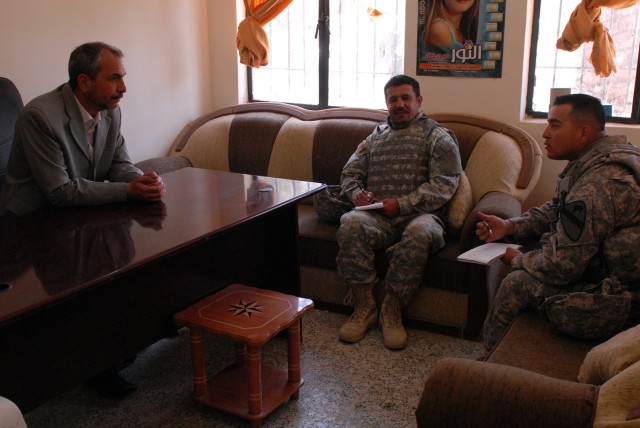
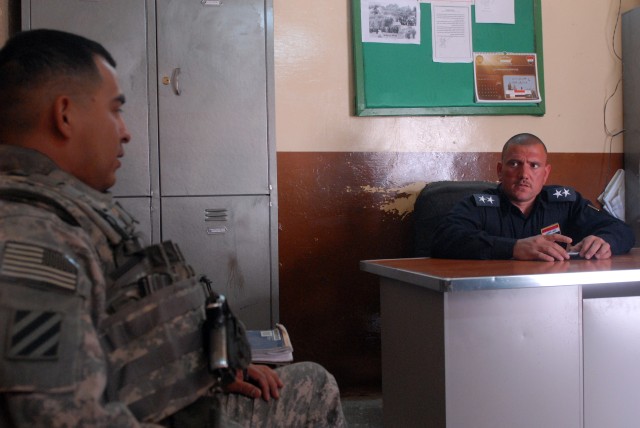
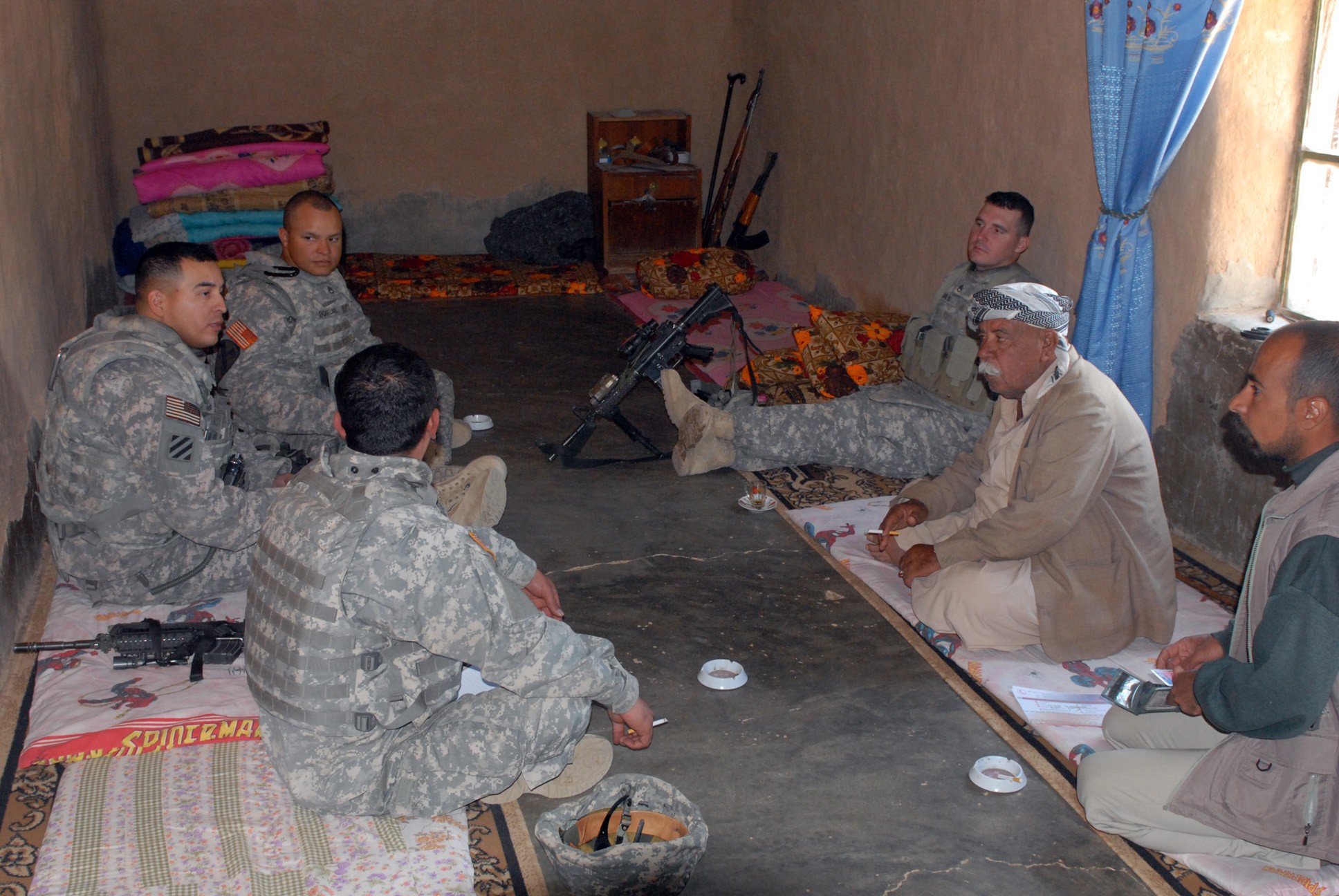
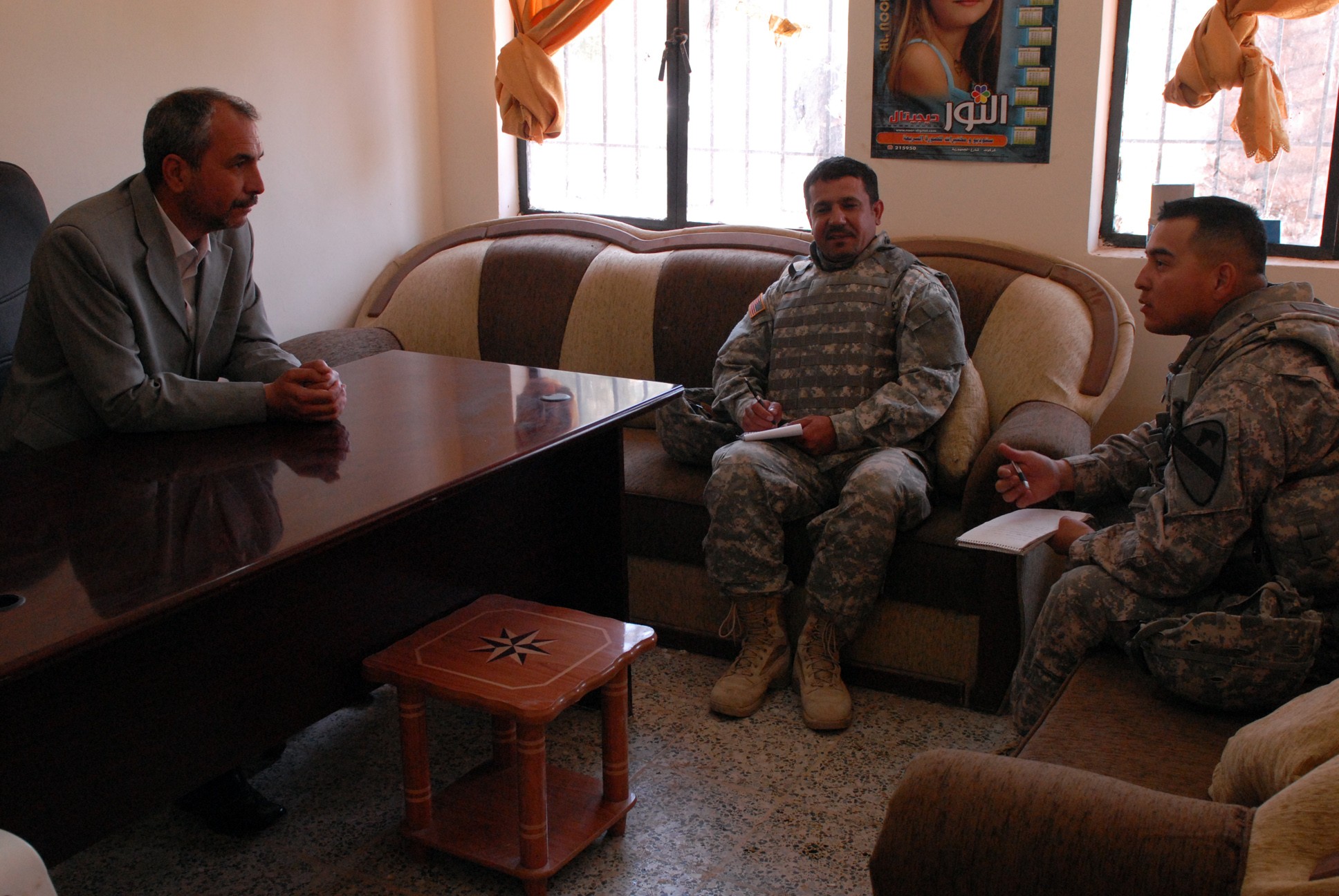
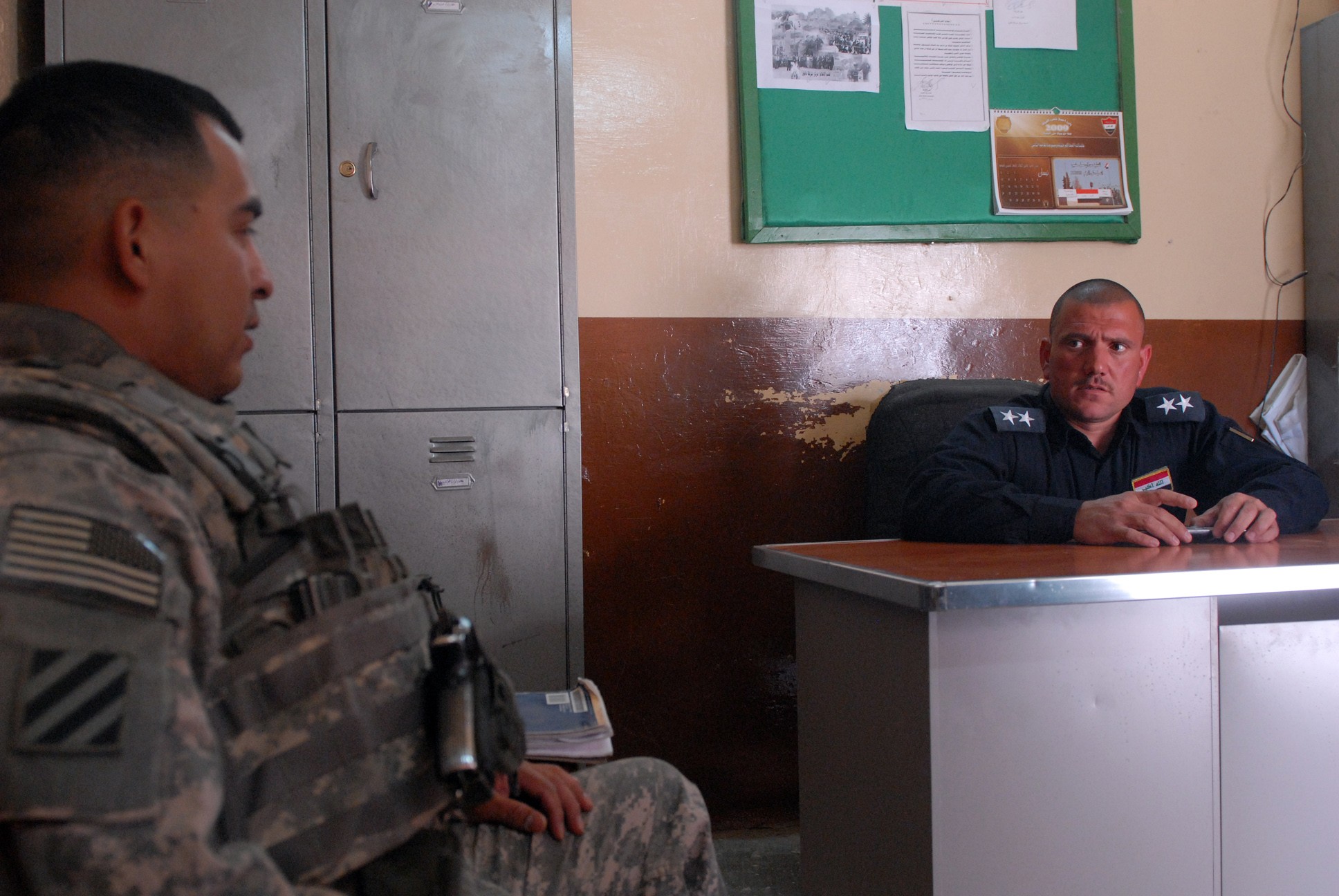
Social Sharing